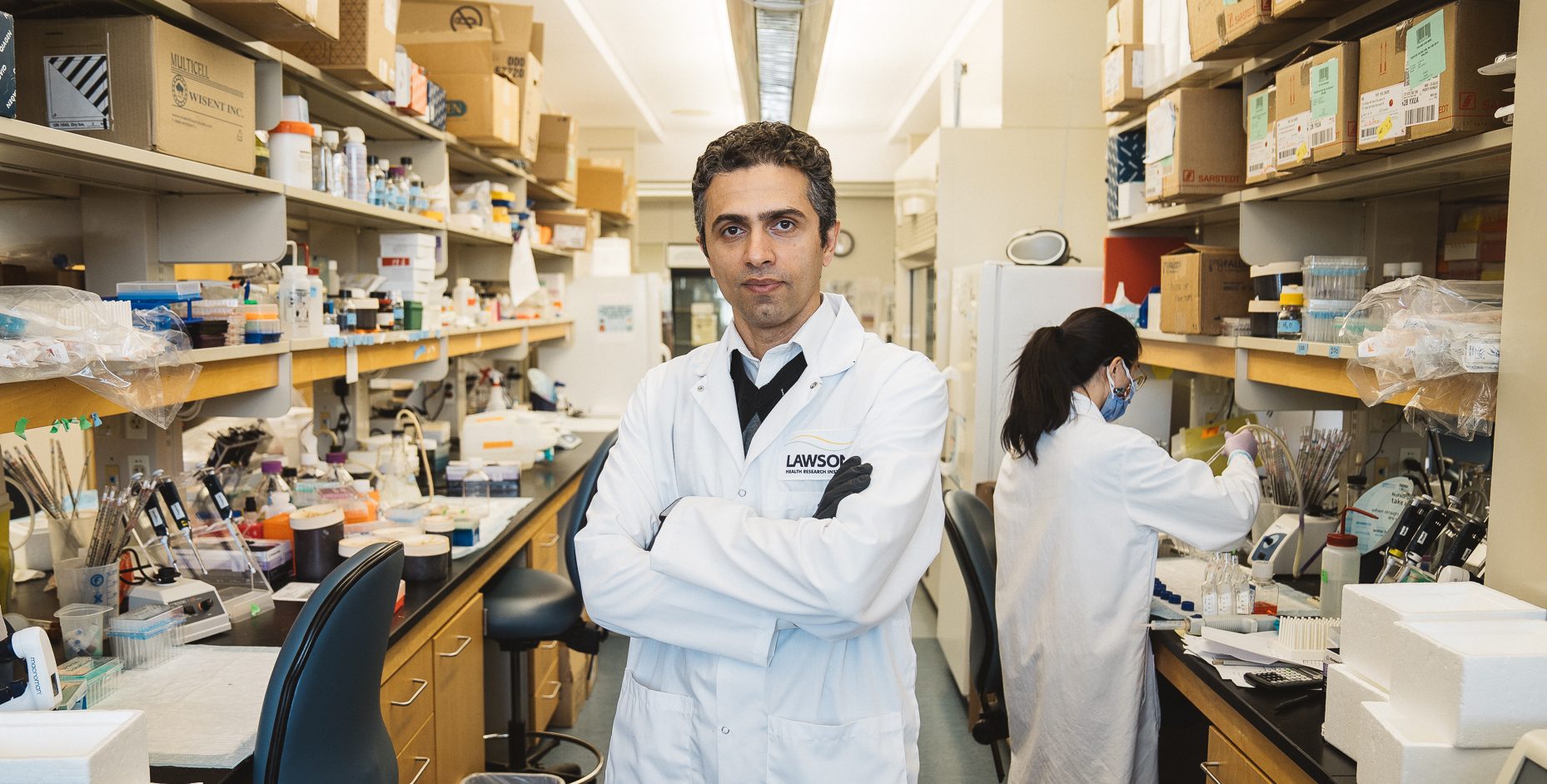A trial led by OICR Investigator Dr. Saman Maleki used fecal microbiota transplants (FMT) to improve how melanoma patients respond to immunotherapy.
People with advanced melanoma who get a fecal transplant before starting immunotherapy could have better results from treatment, according to a promising clinical trial.
In the trial, published in Nature Medicine, patients were given what is called a fecal microbiota transplant (FMT) from a healthy donor in the hopes of improving their gut health before starting immunotherapy, a new type of treatment that stimulates the body’s immune system to kill cancer.
Currently, immunotherapy works for less than half of patients with advanced melanoma, and side effects can be severe. But earlier research showed a healthy gut microbiome triggers a stronger response to immunotherapy.
“We need treatments for melanoma that we can add to existing immunotherapies to improve overall patient response without adding too much toxicity,” says lead investigator Dr. Saman Maleki, a Scientist at Lawson Health Research Institute, Assistant Professor at Western University’s Schulich School of Medicine and an OICR Investigator. “Our study shows that FMT could be a safe and effective option.”
A total of 20 patients from across Ontario and Quebec were recruited for the trial at the Lawson Health Research Institute, the Centre hospitalier de l’Université de Montréal (CHUM) and the Jewish General Hospital (JGH). They were given FMT in capsule form one week before starting immunotherapy.
About 65 per cent of participants saw their cancer improve during the trial, which is higher than the response rate expected from immunotherapy alone (30-40 per cent). Four patients had their cancer disappear completely during the trial — a result Maleki calls ‘remarkable’.
“We are very encouraged by the strong response profile that we observed in this cohort of patients,” he says.
The results also showed that using FMT this way is safe and doesn’t add any additional side effects beyond what is expected from immunotherapy. In fact, FMT may help reduce some immunotherapy side effects, and that potential is being explored in another different clinical trial.
Maleki and colleagues are already working on a larger clinical trial to further explore the effect of FMT and immunotherapy on melanoma. Similar studies are also underway using fecal transplants to treat renal cell carcinoma, lung cancer and uveal melanoma, and there are plans for trials that target pancreatic cancer and breast cancer.
“When I came up with the idea of prospective microbiome modulation in cancer patients in 2016, there was not much enthusiasm in the oncology community,” Maleki says. “Now, we’ve opened the door to using FMT in other cancers in early settings, which could potentially change how cancer patients are treated with immunotherapy drugs in the future.”
This research is supported in part through donor funding from London Health Sciences Foundation, Western University, the Lotte and John Hecht Memorial Foundation, the JGH Foundation, Canadian Cancer Society’s Impact Grant program, The Terry Fox Foundation and OICR’s Investigator Awards. More information is available in an announcement from the Lawson Health Research Institute.


